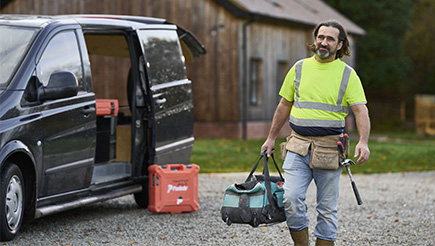Micro-businesses are companies with ten staff or fewer. They account for around 96% of British businesses and they’re the backbone of the UK economy.
But while it’s easy to see the benefits of starting a small business, knowing where to start can be tricky. If you’re looking to launch a micro-business, this checklist is for you.
Here are some of the first steps you might need to make.
Choose a name
It sounds small, but it's really important. You want a name that conveys what your business does and piques your customer's interest. It's really worth putting some quality time into a brainstorming session.
Register your business
When registering your business, the Government’s own website has information to help. For example, if you are setting up a private limited company you need to register with Companies House. First you'll need to appoint a director to run your business and have at least one shareholder (you can be both). Technically you will be an employee, so business income is separate from your personal income. You'll need to register your business for corporation tax and pay yourself from the profits. For the Government’s full advice on starting a business, head to GOV.UK for more.
Secure investment
Crowdfunding websites can be a good way to get people to invest in your business whist building up a bit of word-of-mouth marketing. Another option is to get a loan from the bank: they'll want to see business plans and check through your credit history.
Tax and National Insurance
Registering for self assessment is easy and can be done online. The Government even has full advice on how to register for and file a self assessment tax return. You should do it as soon as possible, but you have until the 5th October in your business's second tax year before you get fined. You should get your ten-digit Unique Taxpayer Reference (UTR) and an activation code in the post within ten days of registering.
Sort out licenses and permits
Depending on what type of business you're going into you may need to get special permission or undergo inspection. For example, if you're planning to start a food-based business you'll likely need a license from your local authority.






